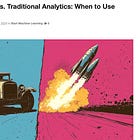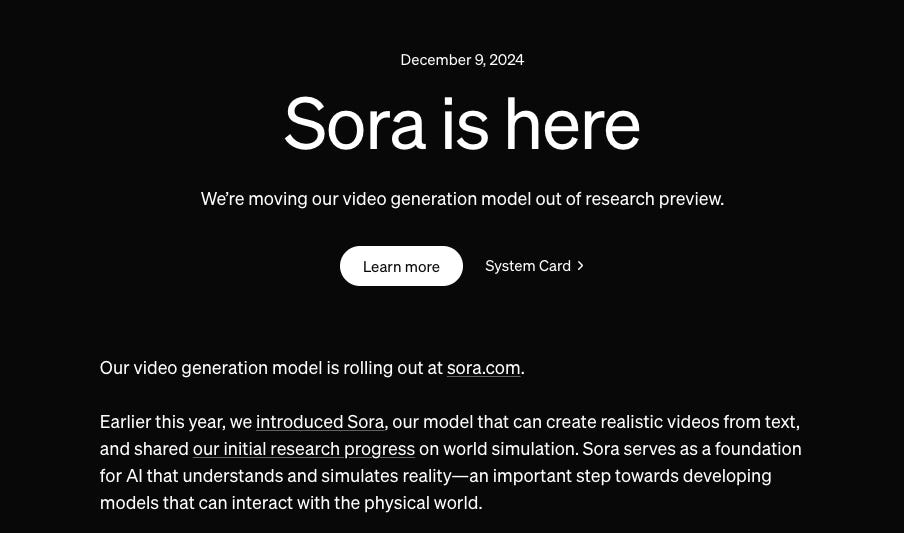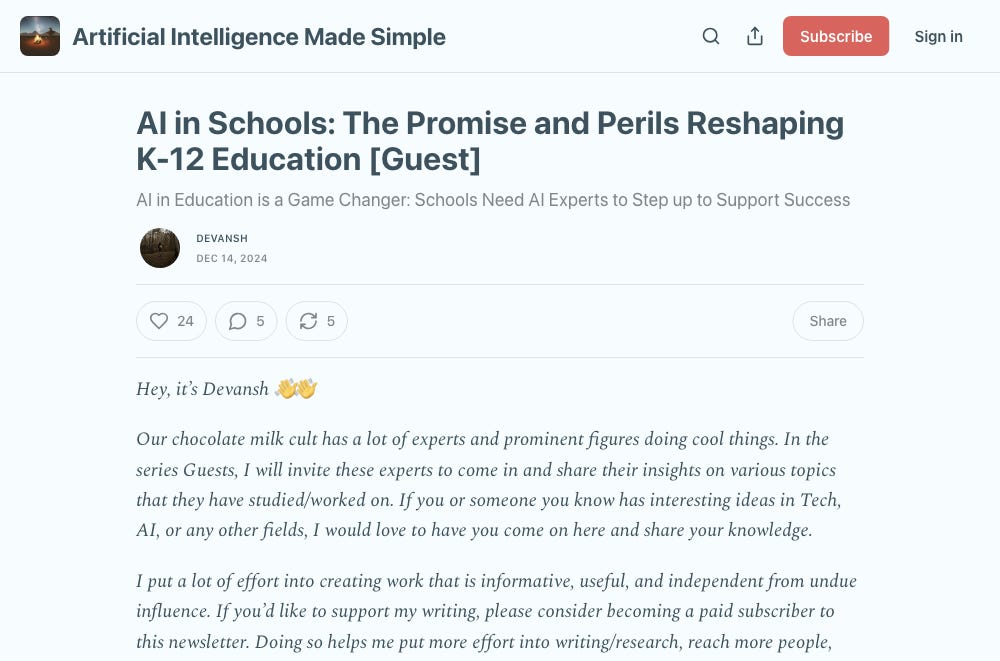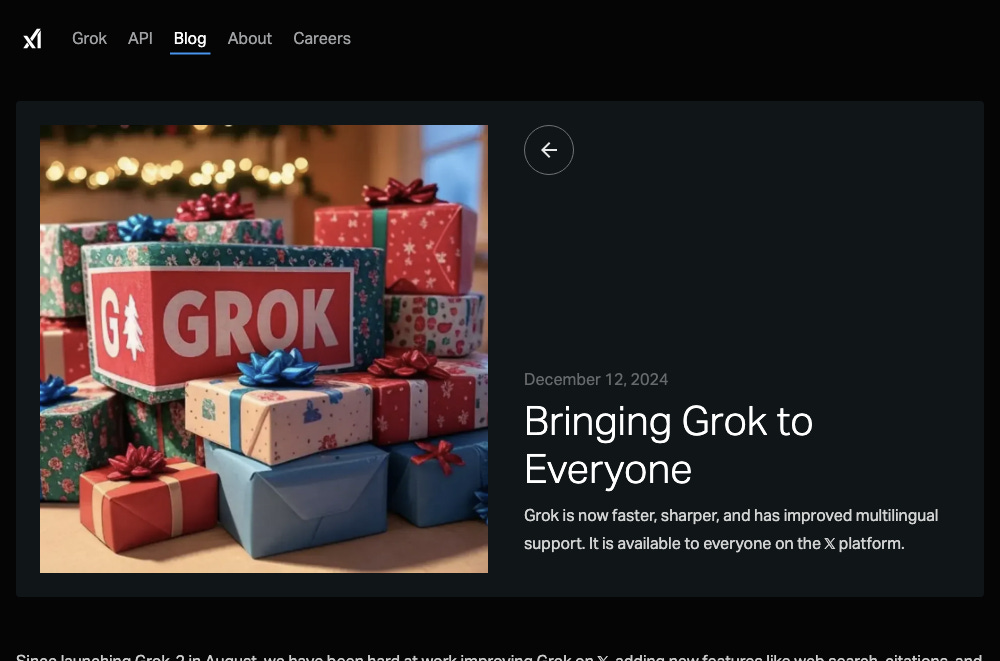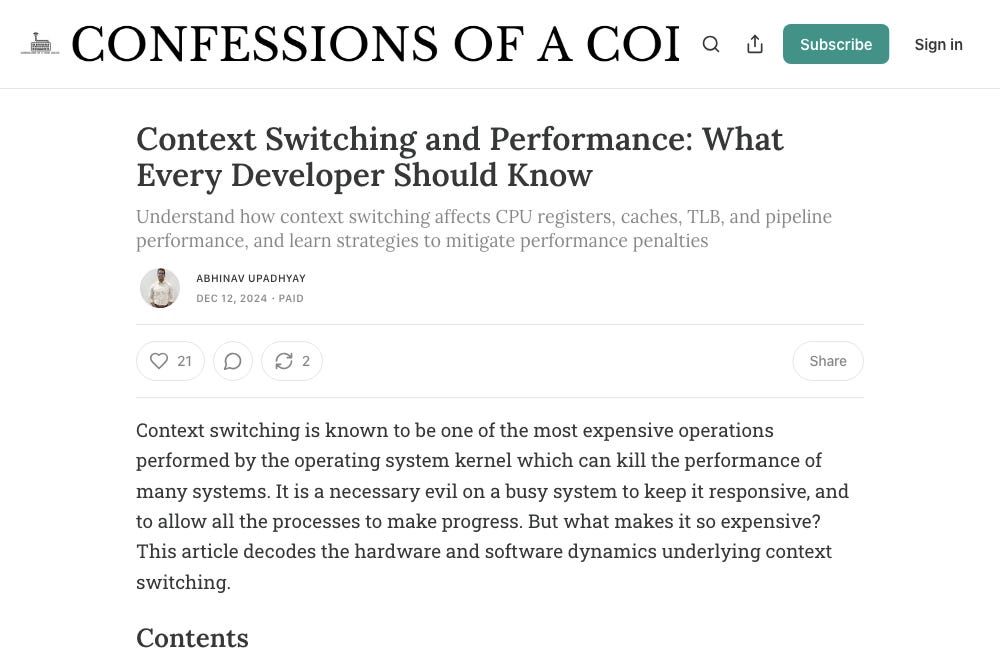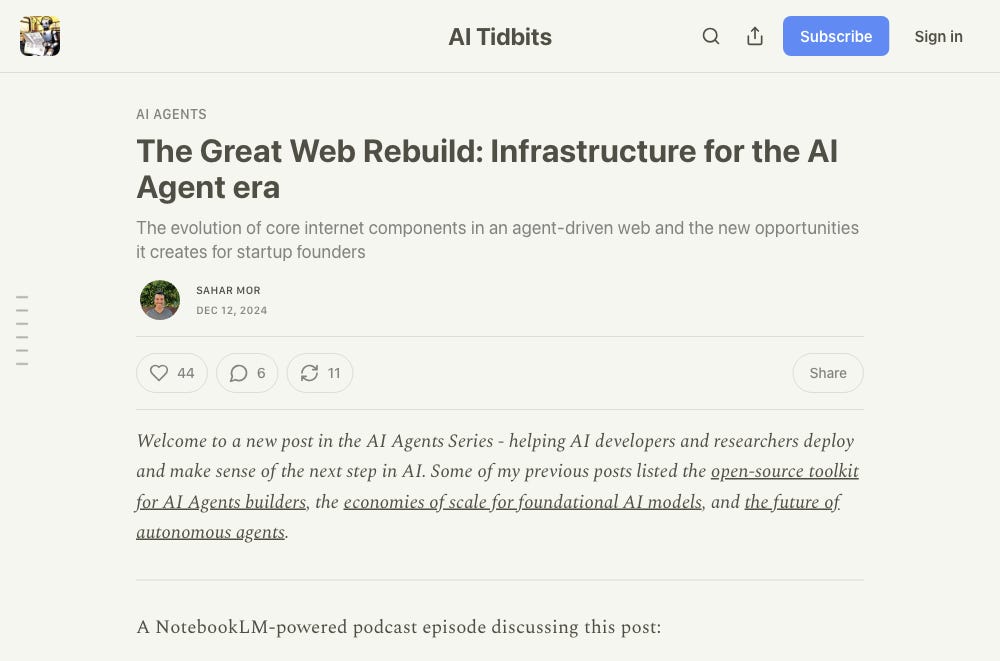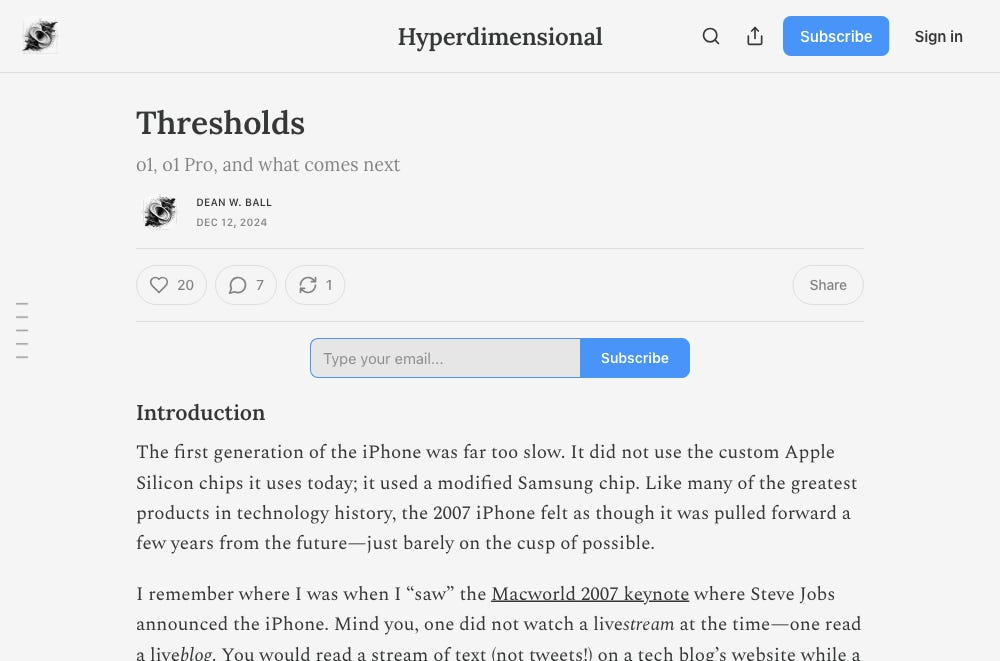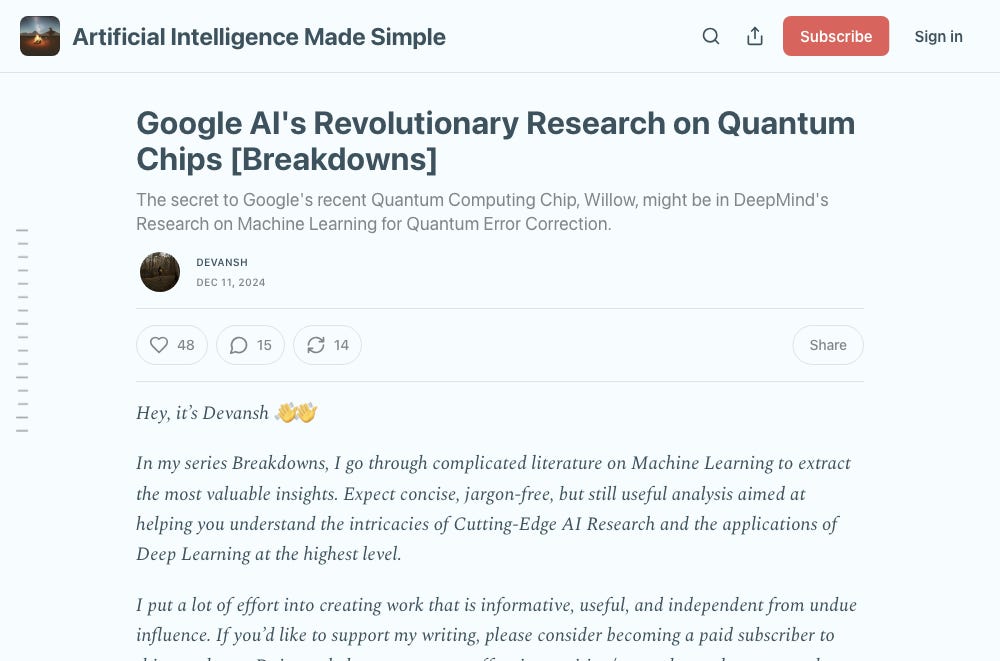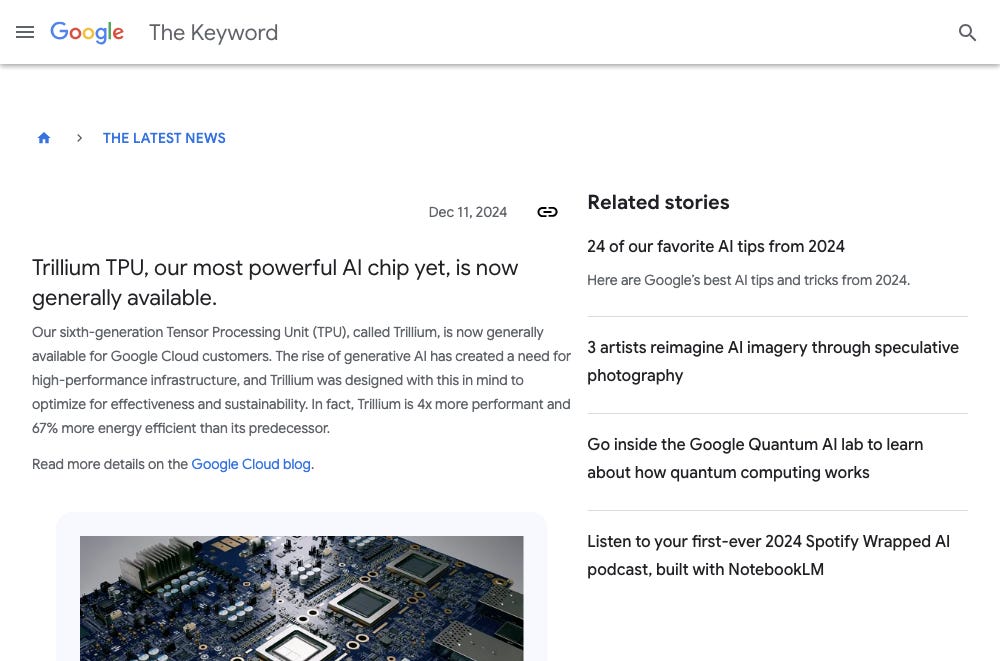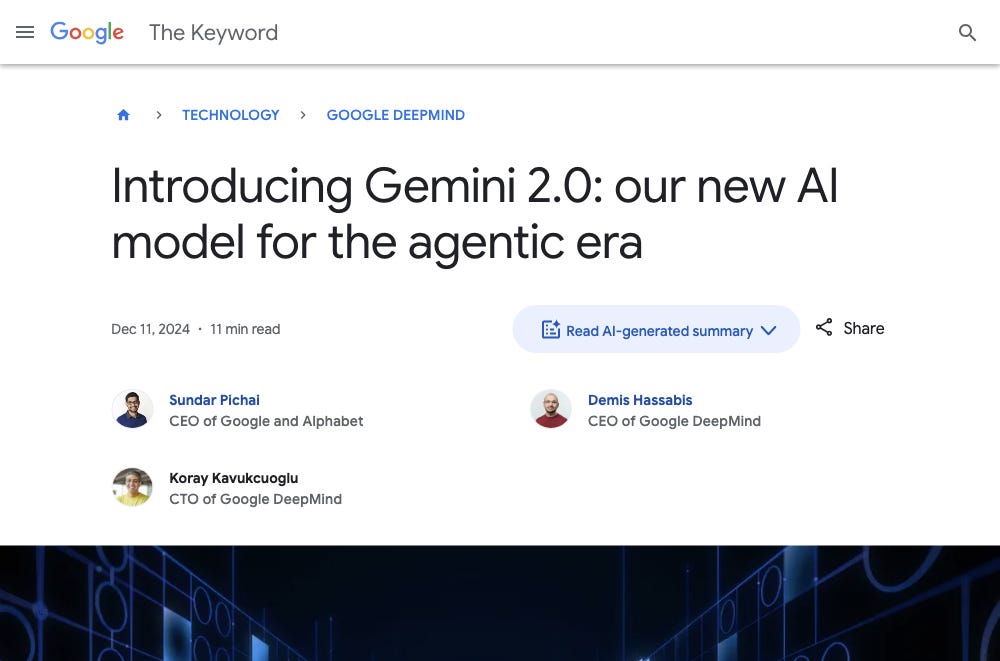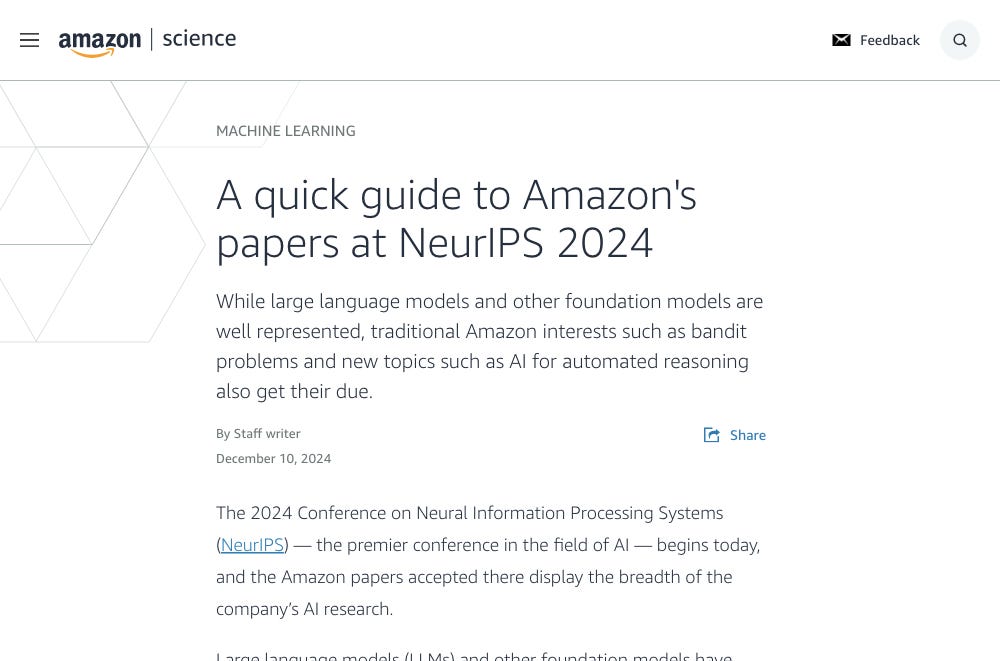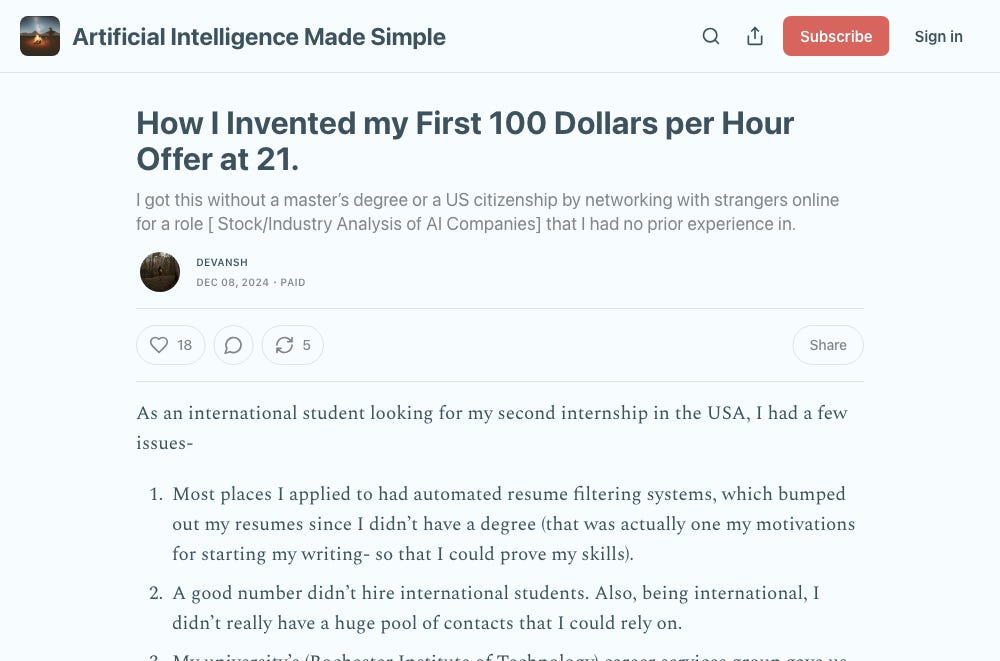MASSIVE New Model Releases from Google, OpenAI, and Meta Change the AI Landscape
Society's Backend Reading List 12-16-2024
Here's a comprehensive AI reading list from this past week. Thanks to all the incredible authors for creating these helpful articles and learning resources.
I put one of these together each week. If reading about AI updates and topics is something you enjoy, make sure to subscribe.
Society's Backend is reader supported. You can support my work (these reading lists and standalone articles) for 80% off for the first year (just $1/mo). You'll also get the extended reading list each week.
A huge thanks to all supporters. 😊
What Happened Last Week
Here are some resources to learn more about what happened in AI last week and why those happenings are important. There were TONS of important AI releases:
Google
Released Gemini 2.0 Flash which is fast, multimodal, and integrate with your favorite apps and services.
Updates on Project Astra, Google’s vision-and-audio based companion using your phone.
Showcased an AI that can control Chrome.
Showcased an AI that can understand video games and help a player in real-time.
Showed an experimental AI to code and fix software bugs.
Released Deep Research, an incredible LLM research tool (I HIGHLY recommend you try this! I’ve been using it for a while and I’m impressed).
Has made its newest AI chip, Trillium, available.
OpenAI
Sora, OpenAI’s text-to-video model has been released and has had generally positive results. It quickly became the best text-to-video AI model available.
Advanced Voice Mode with vision is available for paid subscribers.
Announced ‘projects’ in ChatGPT, a method of organizing work done with ChatGPT.
Microsoft
Releases Phi-4, an impressive Small Language Model.
Meta
Released Byte Latent Transformer which is a tokenizer-free model. Instead of tokenization, this models works directly with bytes. This improves efficiency and flexibility of models and removes errors caused by tokenization.
For links to resources on all of this, check out
’s roundup from this past week and check out the sources below.Last Week's Reading List
In case you missed it, here are some highlights from last week:
Reading List
Sora is here
Sora is a new video generation model that creates realistic videos from text and is now available at sora.com. The updated version, Sora Turbo, is faster and allows users to create videos up to 1080p resolution with various aspect ratios. It includes features for easy input and community sharing, while also focusing on safety and responsible usage.
AI in Schools: The Promise and Perils Reshaping K-12 Education [Guest]
By
AI has great potential to improve education, but it also brings risks that need careful management. Many school leaders see benefits in AI, with some already implementing initiatives, but concerns about privacy and ethics are growing. Experts in AI must work closely with educators to ensure safe and effective use of this technology in schools.
Bringing Grok to Everyone
Grok is now faster and has better multilingual support, available to all users on the platform for free. It features web search, citations, and an image generator called Aurora, enhancing its capabilities. New tools like the Grok button and an improved API are also being introduced to provide more context and options for developers.
Context Switching and Performance: What Every Developer Should Know
By
Context switching is a costly operation that can significantly impact system performance. It is essential for keeping busy systems responsive and allowing processes to progress. The article explores the hardware and software factors that contribute to the high costs of context switching.
The Great Web Rebuild: Infrastructure for the AI Agent era
By
The article discusses the future of the internet as it adapts to AI agents, moving away from traditional systems like CAPTCHAs and credit card verification. It introduces the concept of "Agent Passports," which securely verify an agent's identity and permissions, making automated interactions smoother. Entrepreneurs are encouraged to create new tools and protocols that support this agent-first internet, opening up opportunities for innovation and security.
Thresholds
By
The author discusses how technological advancements often occur in thresholds rather than singular inventions, highlighting the recent release of OpenAI's o1 models. These models are showing significant improvements in performance, prompting discussions about their implications for AI progress and public policy. The author believes that as AI continues to evolve, it will challenge existing assumptions and possibly lead to faster advancements in the near future.
Google Revolutionary AI's Research on Quantum Chips [Breakdowns]
By
Google's DeepMind has developed a machine learning method for correcting errors in quantum chips, which is crucial for reliable quantum computing. This technique, called Quantum Error Correction (QEC), adapts to complex error patterns that traditional methods struggle to handle. The potential market for AI-based quantum error correction is projected to grow significantly in the coming years, highlighting its importance in the emerging tech landscape.
Trillium TPU, our most powerful AI chip yet, is now generally available
Google has released its most powerful AI chip, the Trillium TPU, which is now available to the public. This chip is designed to enhance AI capabilities across various applications. It represents a significant advancement in AI technology.
Introducing Gemini 2.0: our new AI model for the agentic era
Google DeepMind has launched Gemini 2.0, their most advanced AI model, which supports multimodal capabilities like image and audio output. This new model aims to enhance user experiences by providing better reasoning, task completion, and interactions across various applications. Developers can now access Gemini 2.0 Flash for experimental use, paving the way for future AI advancements.
A quick guide to Amazon's papers at NeurIPS 2024
Amazon is presenting a variety of AI research papers at the NeurIPS 2024 conference, focusing on large language models, training methodologies, and topics like bandit problems and speech processing. Their work includes innovative approaches to code generation, commonsense reasoning, and machine learning applications in scientific computing. One notable paper proposes a new machine learning paradigm based on transductive learning.
How I Invented my First 100 Dollars per Hour Offer at 21.
By
Devansh, an international student, faced challenges finding internships in the USA due to automated resume filters and lack of connections. He creatively built relationships on LinkedIn, which led him to invent a unique job role at a financial firm focused on AI and tech investments. His journey highlights the importance of networking and documenting skills online to land opportunities, even without formal experience.
The AI Playground 2024: 10 ways to get hands-on experience
Keep reading with a 7-day free trial
Subscribe to Society's Backend to keep reading this post and get 7 days of free access to the full post archives.




